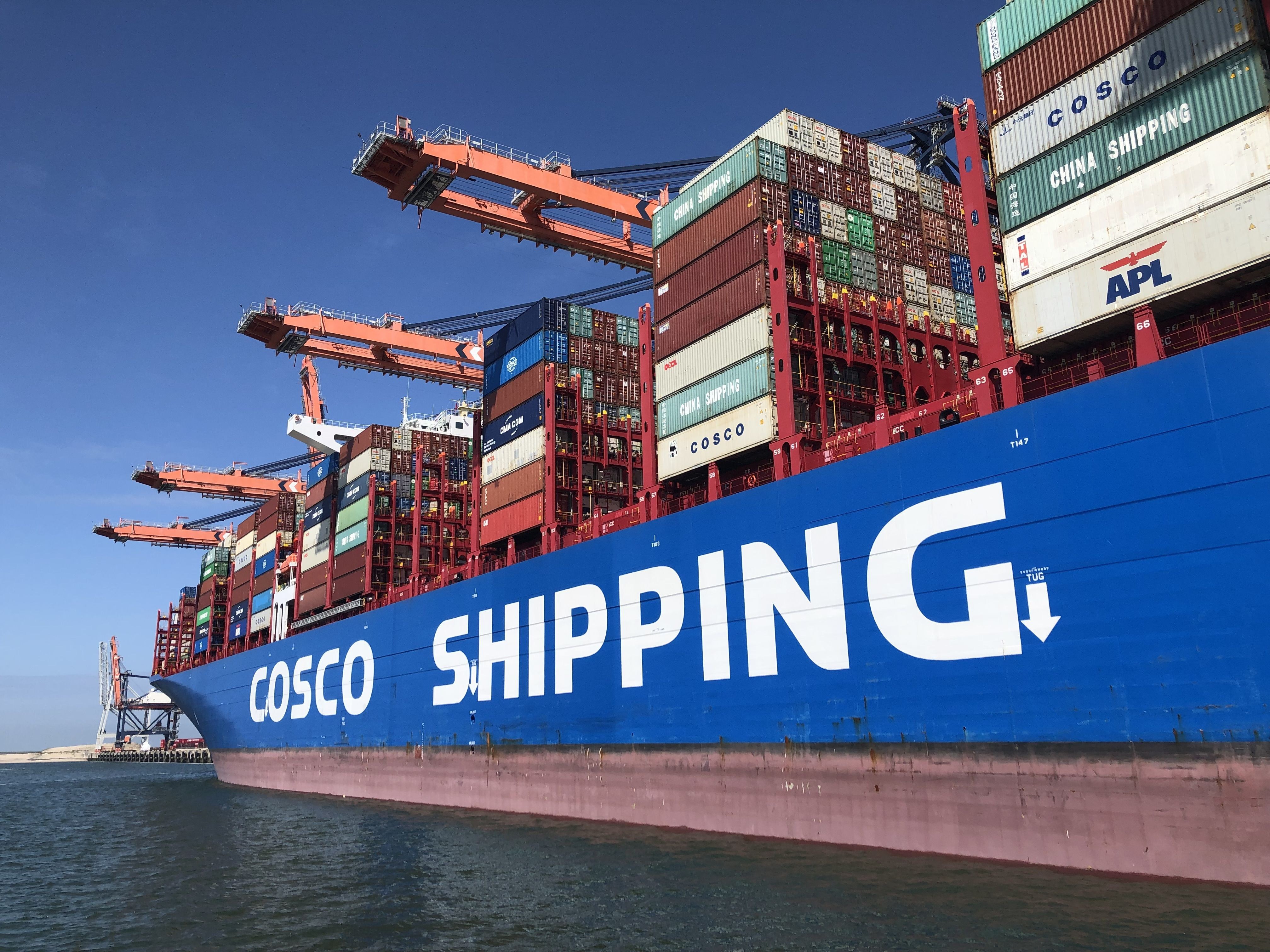Chinese shipping giant COSCO has notified importers and exporters that it is suspending its service to Israel. This announcement comes after a number of leading companies in the sector announced that they would refrain from sailing in the Red Sea, but would nevertheless reach Israel via different routes.

COSCO is considered to be the fourth largest shipping company in the world and sources in the shipping industry wonder if the decision made in China is mainly due to the threat of the Houthi rebels in Yemen to damage vessels making their way to Israel or rather related to the warm and extensive ties between the Chinese government and the leadership in Iran.
COSCO maintains a weekly line for transporting containers to the Haifa Bayport operated by the Chinese government company SIPG (Shanghai International Port Group), which was launched in 2021 and competes with the operation of the Haifa Port. The Chinese giant has another line that it operates jointly with the Israeli shipping company Zim.
According to estimates from sources in the shipping industry, COSCO's decision will mainly affect the Haifa Bayport, although it is operated by a Chinese company, and Zim, which will have to find an alternative for its joint line with COSCO.
A source in the industry told Calcalist that "COSCO may have decided that Israel is too small and immaterial in its business activities, and in any case it diverted the traffic of its vessels to a route that bypasses the African continent due to the threat of the Houthis and enters the Mediterranean Sea through the Straits of Gibraltar. COSCO intends to end its journey in the Mediterranean at the Port of Piraeus, which it owns, so that containers it transports for Israel will be unloaded in Greece into a sort of 'connection' and from there they will be sent to Israel using ships of other companies."
COSCO is represented in Israel by Carmel Shipping Services, which refused to comment and answer Calcalist's questions. Other sources in the shipping industry in Israel said that they had not received an official notification about COSCO’s decision.
According to sources in the shipping industry, ships flying the Chinese flag are the ships least threatened by the Houthis in Yemen, and since they began attacking vessels in the area of the Bab al-Mandab Strait that connects the Red Sea to the Arabian Sea, they have not directed their attacks at ships from China.
The President of the Manufacturers’ Association of Israel (MAI) Ron Tomer warned in a conversation with Calcalist about two weeks ago of a scenario in which shipping companies will decide to provide Israel with an "inferior service", similar to COSCO’s move. According to him: "Some shipping companies may make a decision to provide an inferior service to Israel, and in an attempt to avoid the Houthi threat will unload goods destined for Israel at European seaports, meaning that goods destined for Israel will have to use some kind of connection route, adding costs and prolonging sailing times," he said.
He added that such a situation may harm trade with Israel and the competitiveness of Israeli exporters in the world. According to him, "In such a situation, companies in the world may perceive Israel as a difficult and messy country to trade with."
Since the beginning of the war in Gaza three months ago, China has sided with the Palestinians, and in the debate held in the UN Security Council, it opposed and even prevented condemnation of Hamas, which carried out the massacre along the Gaza border and the southern towns.
A number of large shipping companies, including the Danish Maersk, recently announced the cessation of sailing in the Red Sea and the extension of the route through the Cape of Good Hope. COSCO also announced on December 19 that it would stop sailing through the Red Sea, and last week announced the extension of that decision.
No response was received from the company's offices in Israel.